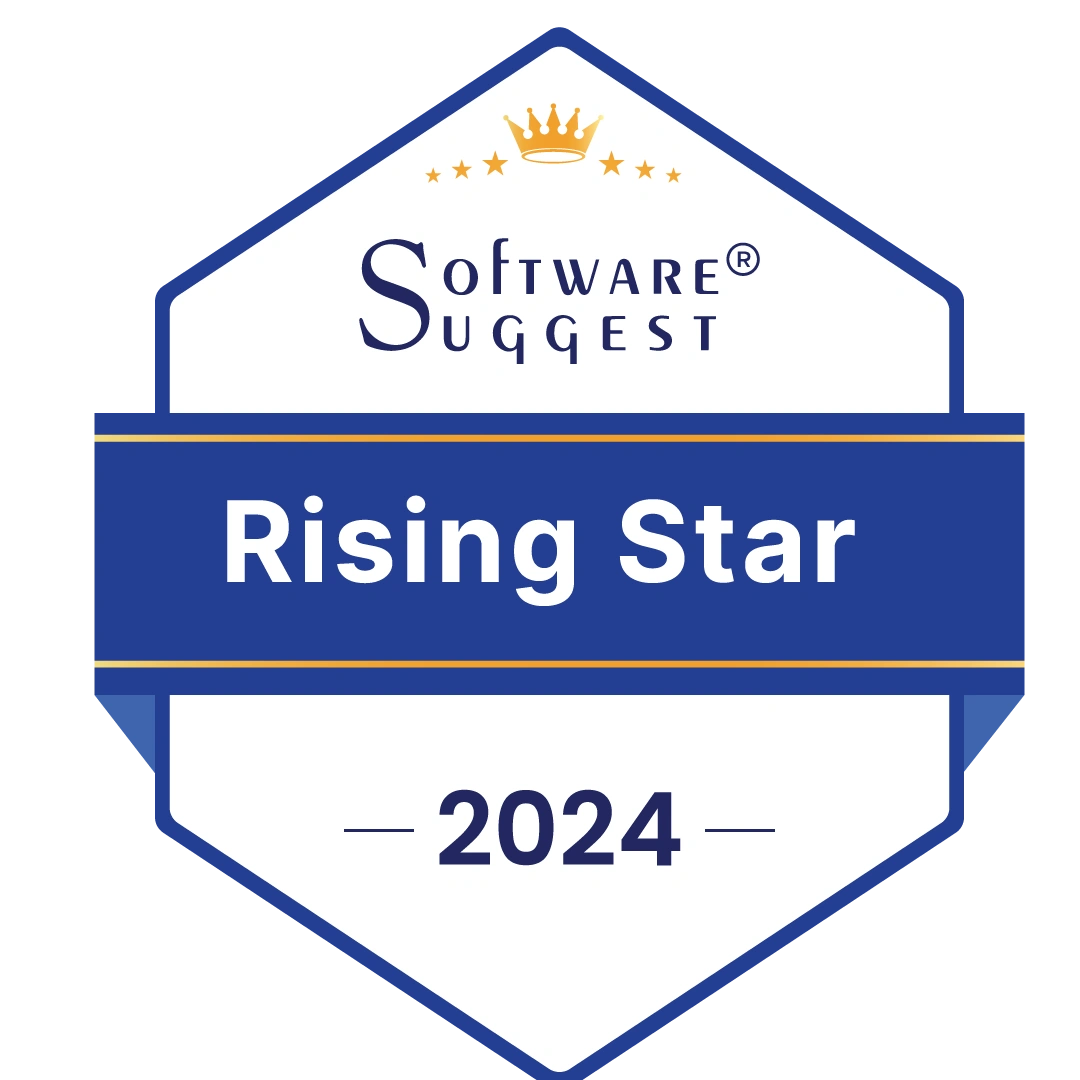
One-Way Interview Questions: How to Create & 50+ Examples
Oct 10, 2025 |
Hiring teams today are under constant pressure to move faster without compromising quality. With remote and hybrid work now the norm, recruiters can no longer rely solely on in-person interviews to screen growing applicant pools. This is where one-way interview questions have become an essential part of modern hiring workflows.
Also known as one-way video interview questions, recorded interview questions, or pre-recorded interview questions, this format allows candidates to respond to structured virtual interview questions asynchronously. Recruiters can then review, compare, and evaluate responses at scale. The result is a more efficient, consistent, and role-focused screening process.
Recent recruitment research shows that over 86% of employers now use virtual interviews in some form, with asynchronous formats playing a key role in early-stage screening for remote and high-volume hiring. This shift reflects a broader focus on structured hiring, fairness, and better candidate comparison rather than ad-hoc interviews.
This guide is written specifically for recruiters and HR professionals. It explains what one-way interview questions are, why they matter, how to create them effectively, and how to use them as a core screening tool.
TL;DR
-
One-way interview questions are recorded video questions used by recruiters to screen candidates asynchronously.
-
They are widely used in remote, hybrid, and high-volume hiring to speed up early-stage screening.
-
Recruiters use them to consistently assess communication, motivation, role fit, and competencies.
-
Effective one-way interview questions are clear, role-specific, and limited to 60–120 second responses.
-
A structured interview question bank improves fairness, comparison, and hiring decisions.
-
When supported by the right tools, one-way interviews enable faster, scalable, and bias-aware recruitment.
What Are One-Way Interview Questions?
One-way interview questions are pre-defined questions that candidates answer via recorded video without interacting with an interviewer in real time. These questions are typically used as pre-screening interview questions during the first stages of the hiring process.
Unlike live interviews, one-way interviews are asynchronous. Candidates record their responses within a given time limit, and recruiters review those recordings later. This makes them particularly effective for remote hiring interviews, graduate recruitment, and roles that attract a high number of applicants.
From an HR perspective, one-way interview questions serve two key purposes. First, they help recruiters assess communication skills, motivation, and role alignment early in the funnel. Second, they introduce structure and consistency into screening, ensuring every candidate is evaluated using the same criteria.
Because responses are recorded, hiring teams can review them collaboratively, revisit them when needed, and reduce reliance on memory or subjective impressions. When designed properly, one-way video interview questions support fairer decision-making and better shortlisting.
How to Create Effective One-Way Interview Questions
Knowing how to create one-way interview questions is critical to getting useful responses. Poorly written questions lead to vague answers and weak screening outcomes.
Start by defining what you want to assess. Each question should focus on one competency, such as communication, problem-solving, or role motivation. Avoid multi-part questions, as they confuse candidates and produce unfocused responses.
Clarity matters. Questions should be written in simple, direct language and free of jargon. Candidates should immediately understand what is being asked without needing additional explanation.
Time limits are equally important. Most one-way video interview questions work best when candidates are given 60 to 120 seconds to respond. This encourages concise answers and makes review easier for recruiters.
Finally, pair each question with basic evaluation criteria. Even a simple guideline outlining what a strong response includes will improve consistency across reviewers and reduce subjective decision-making.
50+ One-Way Interview Questions Examples for Screening
This section forms the core of your structured interview question bank. These best one-way interview questions examples are designed for early-stage screening and can be adapted across roles.
Introductory and Motivation Questions
-
Tell us about your professional background and current role.
-
Why are you interested in this position?
-
What attracted you to our company?
-
How does this role fit into your career goals?
-
What are you looking for in your next opportunity?
Communication and Clarity
-
How would you explain your role to someone unfamiliar with your field?
-
Describe a time you had to communicate complex information clearly.
-
How do you ensure alignment when working with others?
-
Tell us about a situation where miscommunication caused a challenge.
-
How do you adapt your communication style to different audiences?
Behavioral One-Way Interview Questions
-
Describe a challenging situation you faced at work and how you handled it.
-
Tell us about a time you had to meet a tight deadline.
-
Describe a mistake you made and what you learned from it.
-
How have you handled conflict in a professional setting?
-
Tell us about a time you received critical feedback.
Competency-Based Interview Questions
-
How do you prioritize tasks when managing multiple responsibilities?
-
Describe your approach to problem-solving.
-
How do you stay organized in a fast-paced environment?
-
What tools or methods do you use to stay productive?
-
How do you ensure quality in your work?
One-Way Interview Questions for Screening
-
What is your availability to start?
-
Are you comfortable working remotely or in a hybrid setup?
-
What are your salary expectations?
-
Are you legally authorized to work in this location?
-
What type of role environment helps you perform best?
Remote and Virtual Interview Questions
-
How do you stay productive when working remotely?
-
Describe your experience working with distributed teams.
-
How do you manage communication across time zones?
-
What challenges have you faced in remote work?
-
How do you maintain accountability when working independently?
Culture and Team Fit
-
What motivates you at work?
-
Describe your ideal team environment.
-
How do you contribute to team culture?
-
What values are most important to you in a workplace?
-
How do you handle collaboration disagreements?
Problem-Solving and Adaptability
-
Tell us about a time you had to adapt to change quickly.
-
How do you approach unfamiliar challenges?
-
Describe a decision you made with limited information.
-
How do you handle ambiguity at work?
-
What do you do when priorities suddenly shift?
Leadership and Ownership (for mid-senior roles)
-
Describe a time you took ownership of a project.
-
How do you support others when challenges arise?
-
Tell us about a time you influenced a decision.
-
How do you balance autonomy and collaboration?
-
Describe your leadership style.
Closing and Reflection
-
What do you consider your biggest professional strength?
-
What area are you currently working to improve?
-
What does success look like to you in this role?
-
Is there anything else you would like us to know?
-
What questions would you ask if you were hiring for this role?
Sample One-Way Interview Answers (For Recruiter Evaluation)
Providing sample answers helps recruiters align expectations and evaluate responses consistently. These are not “ideal scripts” but benchmarks for quality.
For motivation questions, strong answers typically connect the candidate’s experience to the role and show genuine interest. Generic responses often indicate low engagement.
For behavioral questions, effective responses clearly explain the situation, the actions taken, and the outcome. Candidates who demonstrate reflection and accountability tend to perform better in the long term.
For competency-based questions, look for structured thinking and practical examples rather than abstract statements. Clear logic is more valuable than polished delivery.
Using sample benchmarks internally improves reviewer alignment and strengthens screening decisions.
Tools and Practical Tips for Using One-Way Interviews
To get the most value from one-way video interview questions, recruiters should think beyond the questions themselves.
Choose tools such as ScreeningHive that allow flexible response times, easy review, and collaborative scoring. The ability to tag, rate, and share responses across hiring teams significantly improves workflow efficiency.
Build and maintain a reusable structured interview question bank. Over time, analyze which questions best predict success and refine your library accordingly.
Set clear expectations for candidates. Even a short introduction explaining the purpose and format of the interview improves completion rates and response quality.
Finally, ensure compliance and fairness. Use the same questions, time limits, and evaluation criteria for all candidates applying to the same role.
Conclusion
When used correctly, one-way interview questions are a powerful screening tool for modern recruitment. They help recruiters move faster, evaluate more consistently, and scale hiring without sacrificing quality.
By designing clear questions, building a structured question bank, and aligning evaluation criteria, HR teams can turn one-way interviews into a long-term competitive advantage in remote and hybrid hiring.
Frequently Asked Questions (FAQs)
1. Are one-way interview questions effective for early-stage screening?
Yes, they help recruiters screen candidates quickly and consistently by assessing communication, motivation, and role fit without scheduling live interviews.
2. What roles are best suited for one-way video interview questions?
They work best for high-volume, remote, graduate, and customer-facing roles where early screening focuses on soft skills and basic qualifications.
3. How many one-way interview questions should recruiters ask?
Most recruiters use 3–5 one-way interview questions to balance screening depth with candidate completion rates.
4. Do one-way interviews reduce bias in hiring?
They can reduce bias when all candidates answer the same questions under the same conditions and are evaluated using consistent criteria.
5. How should recruiters evaluate one-way interview responses?
Recruiters should use predefined scoring guidelines or rubrics to assess responses consistently across all candidates.












